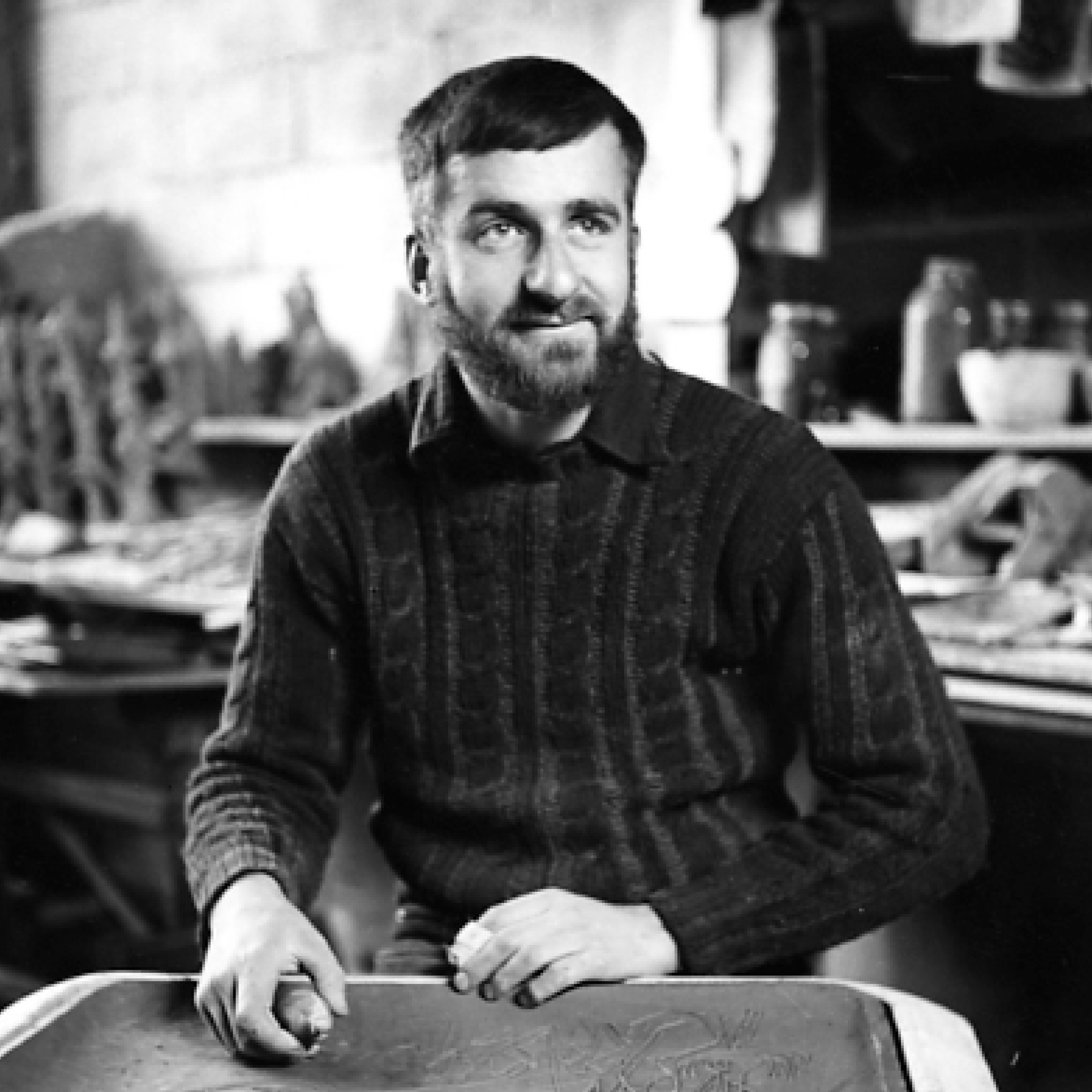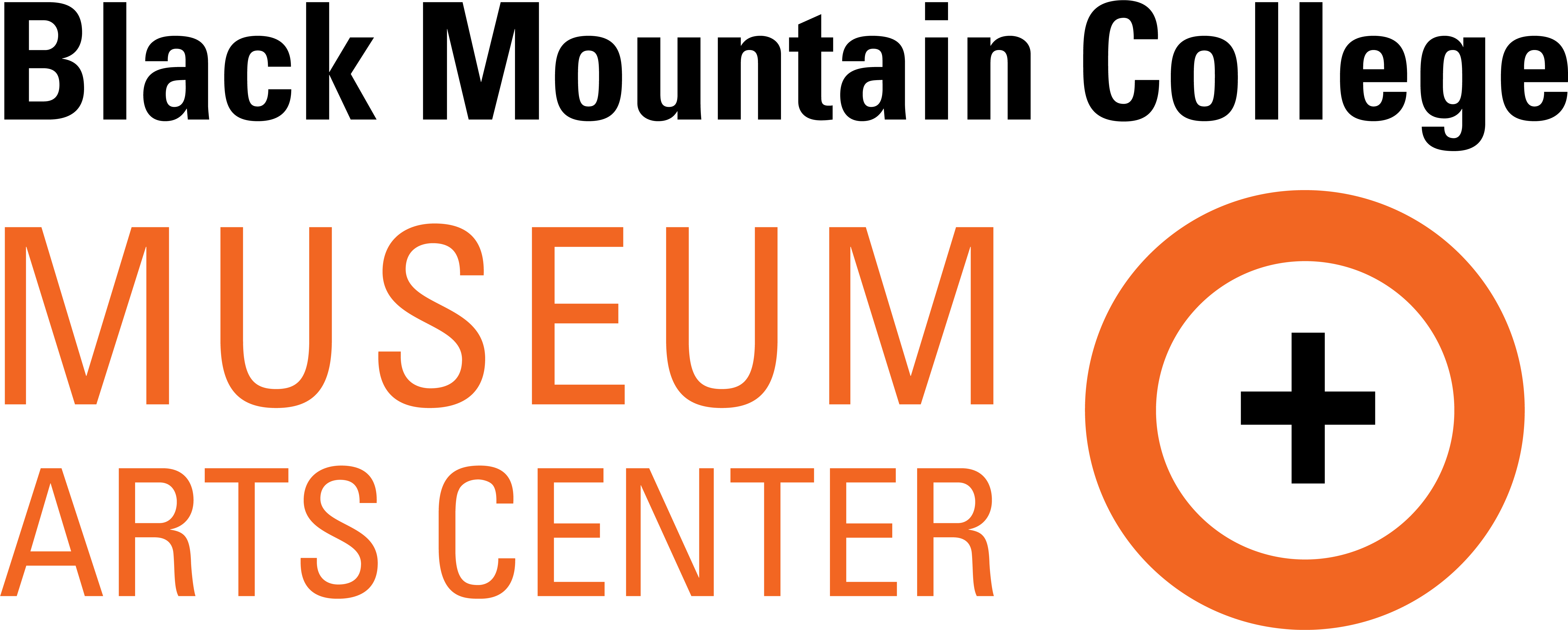David Weinrib

David Weinrib. Courtesy of Western Regional Archives.
Courtesy of Western Regional Archives
FOCUS
Art/ Design/ Craft
ROLE
Guest Faculty
ATTENDANCE
1952 - 1954
DEATH
2016-02-06
New York, NY
In 1952, with his wife Karen Karnes, Weinrib was a resident potter during the first Crafts Institute at Black Mountain College. Lasting October 15–29, 1952, the workshop also included instruction by Bernard Leach, Shoji Hamada, Dr. Soetsu Yanagi and Marguerite Wildenhain. At this time, Weinrib began experimenting in his practice of art production, creating tiles, "slab" pottery, and sculpted pots.
In the summer of 1953, Weinrib and Karnes led the school's second Craft Institute along with Warren MacKenzie, Daniel Rhodes, Peter Voulkos. In fall 1954, Weinrib and Karnes would leave Black Mountain College and relocate to Stony Point, New York to begin working with M. C. Richards, David Tudor, and John Cage at Gate Hill Cooperative.
The Smithsonian Archives of American Art holds a collection called the David Weinrib papers, circa 1950-2015.
Relationships
Wife: Fellow BMC guest faculty, Karen Karnes
Sister: Betsy Weinrib
Asheville Art Museum Collection
Writings about David can be seen in digitized college bulletins on Asheville Art Museum's collection website: collection.ashevilleart.org. They can be found by searching these accession numbers:
2017.40.324 Summer 1954 poster
2017.40.050 1952-1953 college bulletin,
"CERAMICS Karen Karnes and David Weinrib Design and production, including glazing and decorative processes. Gaining familiarity with clay as an aid to integrating material, tool, and method in the design of articles. Wheel throwing, production through use of a mold. Firing facilities are available for both earthenware and stoneware."
Black Mountain College Project
Mary Emma Harris interviewed David in 1978 (transcript) and 1997 (transcript) which are available from Appalachian State University under The Mary Emma Harris and Black Mountain College Project, Inc. Oral History collection.
Topics in 1978: Liberation of craft forms in 1950s – revived interest in pottery in 1950s and 1960s – Peter Voulkos – Poteat House tile commission and Robert Orr architect – comparisonof community at The Land and BMC – Daniel Rhodes – Karnes and Weinrib ashtrays and serving bowls for dining hall – addition to potshop by Jack Rice – Jack Rice and college maintenance – construction of potshop by Robert Turner – “snobbism” at college toward craft – conflicts with Charles Olson – Karen Karnes and Southern Highland Handicraft Guild – slab ceramics at BMC – 1952 Pottery Seminar – BMC as “way of life” – Shoji Hamada – conflict with Marguerite Wildenhain – Leach and The Potter’s Craft – Charles Olson – formation of Gate Hill Cooperative community ("The Land") – Intermedia Foundation – BMC and “beats” and “hips” – opinion on why BMC “failed” – M.C. Richards – celebrations at BMC - drama at BMC – architecture at The Land – Janet Darnell and Threefold Farm – Paul Goodman
Topics in 1997: Ceramic work at BMC – “flowering” of ceramics in US in 1960s – Peter Voulkos – Poteat House tiles – Black Mountain lifestyle – Robert Orr – Daniel Rhodes– Karnes and Weinrib pottery for BMC dining hall – Warren Mackenzie – addition to BMC potshop by Jack Rice – construction of original potshop by Robert Turner – Charles Olson and BMC politics – apartment in Studies Building – Southern Highland Handicraft Guild – student potters – 1952 Pottery Seminar – Shoji Hamada – Soetsu Yanagi – Marguerite Wildenhain – Bernard Leach – Karen Karnes – Charles Olson – Wesley Huss – Gate Hill Cooperative community (“The Land”) – Paul Williams – The Church and the Intermedia Foundation – BMC and the Beat Generation – M.C. Richards – spontaneous performance at BMC – teachers as professional artists
